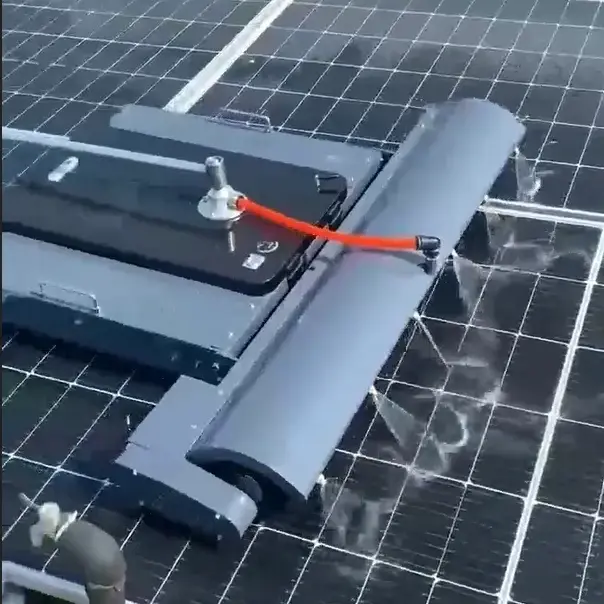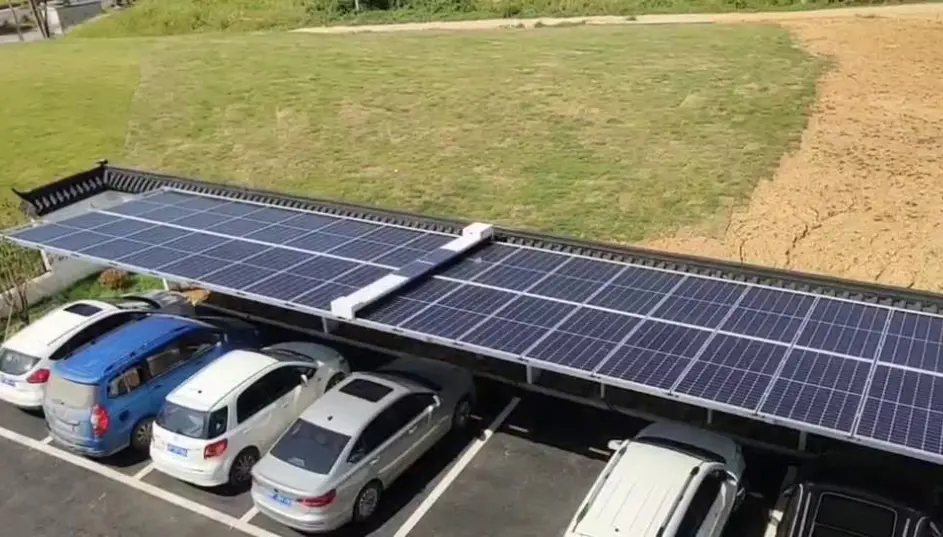На фоне глобального внимания к возобновляемым источникам энергии, фотоэлектрическая (PV) генерация энергии получила широкое признание как чистый источник энергии. Однако сточные воды, образующиеся при очистке PV-панелей, представляют значительную экологическую проблему. В этой статье рассматриваются основные экологические воздействия, возникающие в результате очистки PV-панелей, и излагаются соответствующие стратегии управления.

Воздействие сточных вод от очистки фотоэлектрических панелей на окружающую среду
1. Отходы водных ресурсов
Чистка фотоэлектрических панелей требует значительного количества воды. Исследования показывают, что для одной чистки фотоэлектрической станции мощностью 1 МВт требуется 5 тонн пресной воды и 230 килограммов чистящих средств, а ежегодная частота чистки составляет 15 раз. Если взять в качестве примера фотоэлектрическую станцию мощностью 200 МВт в Гуанси-Гуйпине, то годовое потребление воды достигает приблизительно 15 000 тонн. Это не только представляет собой трату драгоценных водных ресурсов, но и может привести к дефициту воды в местных районах.
2. Загрязнение почвы
Чистящие средства, используемые для фотоэлектрических панелей, часто содержат поверхностно-активные вещества и другие химические добавки, такие как отбеливатели и ароматизаторы. Длительное накопление этих химикатов может привести к загрязнению почвы. За 25-летний цикл эксплуатации накопление загрязняющих веществ может превратить землю в «токсичную» территорию, что отрицательно скажется на росте урожая и потенциально повлияет на здоровье человека через пищевую цепочку.
3. Загрязнение воды
Если сбрасывать сточные воды без очистки, они могут загрязнять водоемы. Исследования показывают, что даже низкие концентрации поверхностно-активных веществ в чистящих средствах могут быть крайне токсичными для планктона и рыб. Кроме того, анионные поверхностно-активные вещества (LAS) производят значительное количество пены, затрудняя контакт воды с воздухом, тем самым истощая растворенный кислород в воде и еще больше ухудшая качество воды. Это не только угрожает выживанию водных организмов, но и ставит под угрозу безопасность питьевой воды.
4. Ущерб экосистеме
Сточные воды, образующиеся при очистке фотоэлектрических панелей, негативно влияют на окружающие экосистемы. Загрязнение почвы и воды может нарушить рост растений и водных организмов, нарушая экологический баланс и влияя на общее состояние экосистемы.
5. Правовые нормы и ответственность
Согласно национальному законодательству, принцип «кто загрязняет, тот и управляет» обязывает фотоэлектрические электростанции нести ответственность за устранение экологического ущерба, нанесенного сточными водами в результате очистных работ. Следовательно, крайне важно планировать объекты сбора и очистки сточных вод на ранних стадиях разработки проекта, чтобы избежать возможных будущих затрат на рекультивацию.
Альтернативные решения по очистке и меры управления
Альтернативные решения для очистки
Для смягчения воздействия на окружающую среду изучаются и внедряются различные альтернативные решения для очистки. Например, безводные роботы-уборщики используют эффективную технологию щеток для очистки фотоэлектрических панелей, достигая эффективности очистки более 90% при значительном сокращении использования воды и химических веществ. Таким образом, используя роботы для уборки без воды отличный вариант. Хотя высокие первоначальные затраты на такие устройства ограничивают их широкое распространение, их долгосрочные экологические преимущества очевидны.

Меры по охране окружающей среды
Для решения проблем, связанных со сточными водами, образующимися при очистке фотоэлектрических панелей, можно реализовать следующие меры управления:
Сбор и очистка сточных вод: На начальном этапе строительства фотоэлектрической станции необходимо создать сооружения для сбора и очистки сточных вод, чтобы гарантировать, что сточные воды, образующиеся в результате очистки, будут очищены перед сбросом или использованы для орошения ландшафта.
Использование экологически чистых моющих средств: Выбирайте чистящие средства с минимальным воздействием на окружающую среду, чтобы уменьшить количество химических остатков и загрязнений.
Регулярный мониторинг: Проводите регулярный мониторинг почвы и водоемов для оценки уровня загрязнения и принятия своевременных мер по устранению последствий.
Усиление регулирования: Государственным органам следует усилить экологический надзор за фотоэлектрическими установками, чтобы обеспечить соблюдение требований по охране окружающей среды и предотвратить неограниченный сброс сточных вод.
Заключение
Воздействие сточных вод от очистки фотоэлектрических панелей на окружающую среду нельзя игнорировать. Крайне важно принимать эффективные управленческие и технологические меры на этапах планирования, строительства и эксплуатации проектов, чтобы минимизировать неблагоприятное воздействие на водные ресурсы, почву, водоемы и экосистемы. Используя экологически чистые технологии, такие как безводные роботы-уборщики, и усиливая нормативный надзор, мы можем способствовать развитию фотоэлектрической энергетики, одновременно защищая нашу окружающую среду.